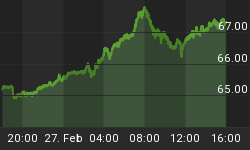How much do you know about Bernard Baruch?
He's mentioned in the foreword of The Elliott Wave Principle - Key To Market Behavior, A.J. Frost's and Robert Prechter's definitive book on wave analysis (emphasis added):
"Baruch, a multimillionaire through stock market operation and adviser to American presidents, hit the nail on the head in just a few words: 'But what actually registers in the stock market's fluctuations,' he said, 'are not the events themselves, but the human reactions to these events. In short, how millions of individual men and women feel these happenings may affect their future.' Baruch added, 'Above all else, in other words, the stock market is people. It is people trying to read the future. And it is this intensely human quality that makes the stock market so dramatic an arena, in which men and women pit their conflicting judgments, their hopes and fears, strengths and weaknesses, greeds and ideals.'"
Prechter, the founder and president of market forecasting company Elliott Wave International, quotes Baruch again in his book The Wave Principle of Human Social Behavior:
"All economic movements, by their very nature, are motivated by crowd psychology. Without due recognition of crowd-thinking ... our theories of economics leave much to be desired. It has always seemed to me that the periodic madnesses which afflict mankind must reflect some deeply rooted trait in human nature -- a trait akin to the force that motivates the migration of birds or the rush of lemmings to the sea. It is a force wholly impalpable... yet, knowledge of it is necessary to right judgments on passing events."
Baruch lived a long life (1870-1965). Baruch, My Own Story is a great read. He reminisces about J.P. Morgan, E.H. Harriman, "Diamond" Jim Brady, "Bet a Million" Gates and others; his was an interesting story to tell. Prechter shares Baruch's viewpoint about how mass psychology relates to the market:
"As I see it, markets are people, and people never change." -- Prechter's Perspective
Bob Prechter is the world's foremost practitioner of the Elliott Wave Principle. The Principle describes how the markets reflect changes in mass psychology -- and how that psychology shapes market trends. Despite a common belief to the contrary, markets are not random. It's been discovered, by repeated observation, that changes in mass psychology and therefore the markets are actually patterned. Let me repeat -- changes in mass psychology and the markets are actually patterned.
Now, here's the key to probabilistic forecasting: These patterns repeat themselves. That's what makes markets predictable. Once you know what part of the pattern the market is in, you can make a probabilistic forecast as to where the market should go next.
"The mechanics of the patterns appear to reflect mathematical characteristics of a family of patterns found throughout nature." -- Bob Prechter, Pioneering Studies in Socionomics
If a man who made multiple millions in the market believed in the power of mass psychology, you too may find it rewarding to discover the patterns of mass psychology which are developing this very moment.
Download 10 FREE Lessons on Understanding Crowd Behavior Using the Elliott Wave Principle here. Bernard Baruch knew the same thing about the markets as Robert Prechter: If you can understand the herding impulse driving the markets, you can understand the markets and even probabilistically anticipate future market moves. Get on the fast track to understanding market psychology -- learn more about the FREE 10-Lesson Elliott Wave Tutorial here.















